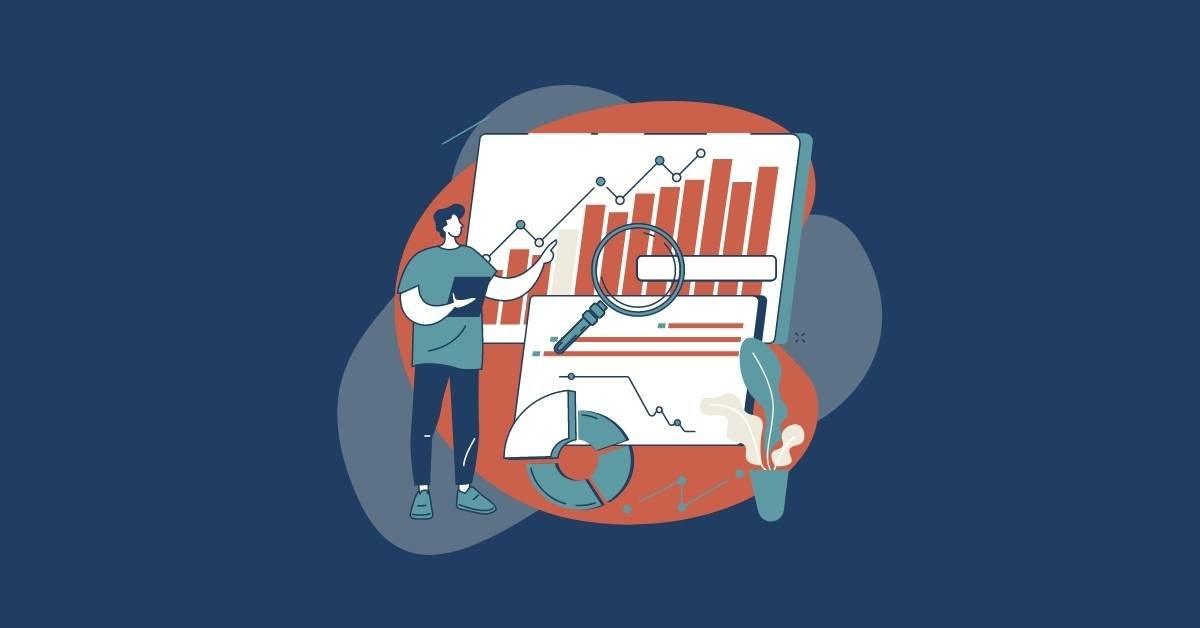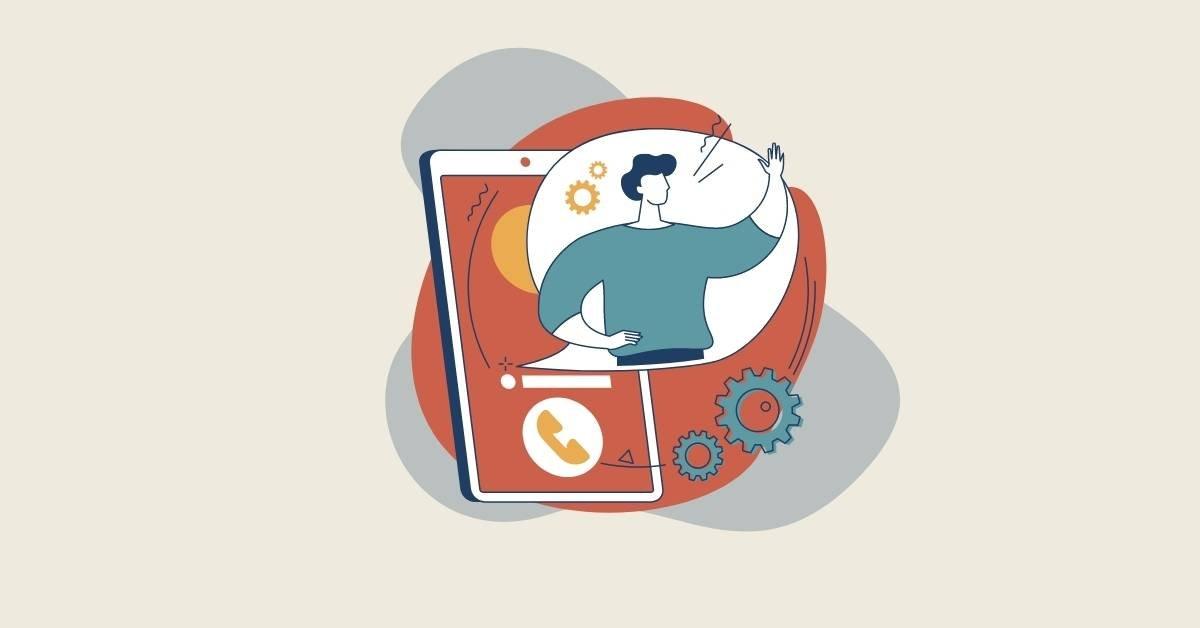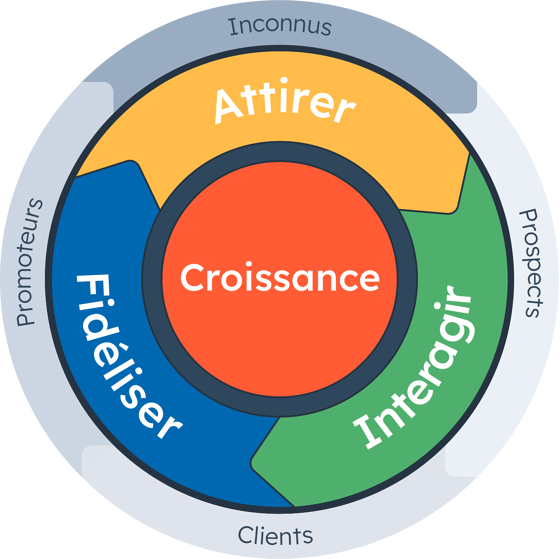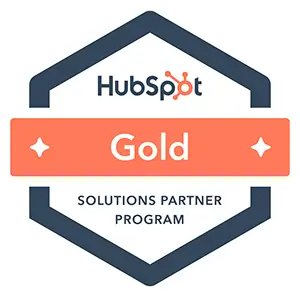A CRM (Customer Relationship Management) is software that allows you to manage interactions with customers and prospects, as well as the data linked to these interactions. The purpose of a CRM is to enable a business to better understand its customers and better meet their needs, in order to develop lasting relationships and maximize the value of those customers to the business.
A CRM typically consolidates customer information into a centralized database, which can be accessed by anyone in the company who needs it. This makes it possible to better coordinate sales actions, track sales opportunities and manage marketing campaigns. A CRM can also integrate communication tools, such as emails or chatbots, to facilitate interactions with customers.
There are several reasons why a company may decide to use a CRM (Customer Relationship Management):
Improve the relationship with customers in general:
A CRM allows all information about customers and prospects to be centralized in a single database, which facilitates communication and coordination between the different departments of the company. This can help improve the quality of the relationship with customers by offering them a more personalized service tailored to their needs.
A CRM (Customer Relationship Management) can help improve the relationship with customers in several ways:
Centralization of information
A CRM allows all information about customers and prospects to be consolidated into a single database, which facilitates communication and coordination between the different departments of the company. This can help avoid miscommunications and provide more personalized service to customers.
Interaction Tracking
A CRM tracks all customer interactions, whether phone calls, emails, online chat, etc. for all departments ( customer service , sales & marketing).
Management of complaints and requests
A CRM can help manage customer complaints and inquiries efficiently and track their resolution to completion. This can help resolve customer issues faster and improve service quality.
Personalization of communication
A CRM can help personalize communication with customers based on their preferences and purchase history. This can build customer loyalty and make them feel like they are seen as individuals rather than numbers.
Data analysis
A CRM can collect and analyze a lot of data about customers, such as their purchasing history, preferences or behavior. This can help the company better understand its customers and adapt its marketing and sales strategy accordingly.
Improve the efficiency of your customer service:
A ticket service can help customer service in many ways!
Management of requests and complaints
A ticket service can help manage customer inquiries and complaints effectively by providing them with a quick and easy way to report a problem. Tickets can be tracked until resolved, which can help resolve customer issues more quickly.
Improved quality of service
A ticketing service can help improve service quality by allowing customers to report a problem and ensuring their request is addressed. This can build customer loyalty and make them feel like they’re being listened to.
Better cooperation
A ticketing service can facilitate collaboration between different company departments by providing real-time access to customer requests and information. This can help avoid communication errors and speed up decision-making processes.
Data analysis
A ticket service can collect and analyze a lot of data about customer inquiries and complaints, which can help the company better understand its customers and adapt its customer service strategy accordingly.
Resource management
A ticketing service can help better manage resources by identifying the most common issues and prioritizing requests based on their importance. This can help improve customer service efficiency.
Monitoring & centralization of communications
A CRM helps track all customer interactions, be it phone calls, emails, online chat, etc. This makes it possible to better understand the needs and expectations of customers and to better respond to their requests.
Net promoter score and surveys
The Net Promoter Score (NPS) is an indicator for measuring the satisfaction and loyalty of a company 's customers. It is calculated by asking a sample of customers the following question: “On a scale of 0 to 10, where 0 means “strongly do not recommend” and 10 means “strongly recommend,” how much would you recommend our company to a friend or to a colleague? The responses are grouped into three categories:
Promoters: these are customers who have given a rating of 9 or 10. They are very satisfied with the company and are likely to recommend it to those around them.
Passives: these are customers who gave a rating of 7 or 8. They are satisfied with the company, but less inclined to recommend it.
The detractors: these are the customers who gave a score from 0 to 6. They are dissatisfied with the company and may even advise against it to those around them.
NPS is calculated by subtracting the percentage of detractors from the percentage of promoters. For example, if the company has a percentage of detractors of 20% and a percentage of promoters of 50%, its NPS will be 50 - 20 = 30. A positive NPS (greater than 0) indicates that the company has more customers who are satisfied and inclined to recommend it than those who are dissatisfied and who advise against the company. A negative NPS indicates the opposite.
Surveys are also essential for chat and ticket tools to measure and get feedback.
Accelerate the sales process:
A CRM can help track the progress of sales opportunities and identify next steps to take, which can speed up the sales process.
There are several reasons why a company may want to improve its sales process with a CRM (Customer Relationship Management):
Acceleration of the sales process: A CRM can help track the progress of sales opportunities and identify next steps to take, which can speed up the sales process.
Better lead management: A CRM can help better manage leads (prospects) by tracking their progress and alerting teams when actions need to be taken. This can maximize the chances of conversion.
Data Analysis: A CRM can collect and analyze a lot of data about customers and prospects, which can help the company better understand its targets and adapt its sales strategy accordingly.
Improved collaboration: A CRM can facilitate collaboration between different departments of the company by allowing real-time access to data and information. This can help avoid communication errors and speed up decision-making processes.
Unify marketing efforts:
A CRM (Customer Relationship Management) can help the marketing team in several ways:
Marketing Campaign Management: A CRM can help plan, execute and track marketing campaigns by centralizing all customer and prospect information in a single database. This makes it possible to better target campaigns and obtain more precise results.
Data analysis: A CRM can collect and analyze a lot of data about customers and prospects, such as their purchasing history, preferences or behavior. This can help the marketing team better understand their targets and adapt their marketing strategy accordingly.
Personalization of communication: A CRM can help personalize communication with customers based on their preferences and purchasing history. This can boost the effectiveness of marketing campaigns and improve customer engagement.
Lead tracking: A CRM can help track the progress of leads (prospects) and identify the next steps to take to convert them into customers. This can speed up the sales process and maximize the chances of conversion.
Managing relationships with influencers: A CRM can help manage relationships with influencers by centralizing all information about them in a single database. This can facilitate communication and coordination with influencers and maximize the effectiveness of marketing campaigns conducted with them.
Data analysis :
A CRM makes it possible to collect and analyze a lot of data on customers and prospects, such as their purchasing history, preferences or behavior. This can help the company better understand its customers and adapt its marketing and sales strategy accordingly.
Increase productivity:
A CRM (Customer Relationship Management) can help increase productivity through automation in several ways:
Automate tedious tasks: A CRM can automate some tedious tasks, like entering data or tracking customer interactions. This allows teams to focus on higher value tasks, such as developing new sales opportunities.
Automated workflows: A CRM can allow to define automated workflows, which trigger specific actions according to predefined events. For example, when a lead (prospect) is converted into a customer, the CRM can automatically send an order confirmation and start a satisfaction follow-up process.
Automated email sending: A CRM can allow emails to be sent automatically at predefined intervals, such as follow-up emails or loyalty emails. This can help maintain customer relationships without requiring human intervention.
Integration with other tools: A CRM can be integrated with other tools, such as project management or accounting tools, which can automate certain tasks and facilitate communication between different departments of the company.
In summary, automating tasks with a CRM can help save time and improve team efficiency, which can translate into increased business productivity.
WE ARE CERTIFIED HUBSPOT PARTNERS
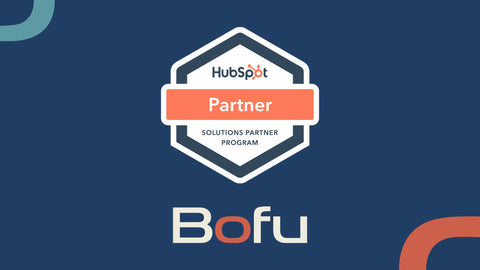
HUBSPOT PARTNER AGENCY
Structure the growth of your business by establishing a precise strategic plan , allowing you to accelerate its development and generate a rapid and measured return on investment.
Sales Hub | MarketingHub | ServiceHub | Operations Hub | Integrations


